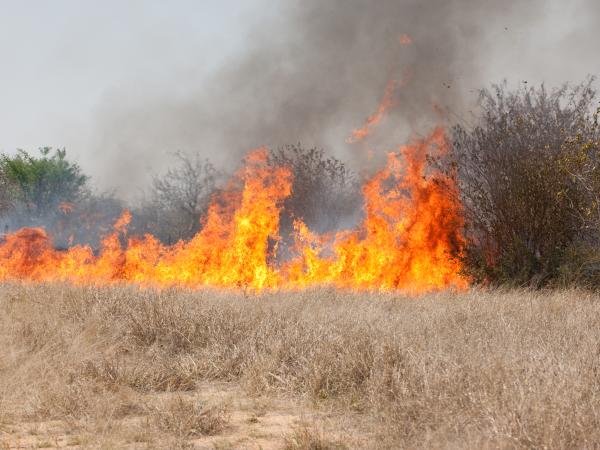This research identifies low-flammability plant species that can help mitigate the impacts of wildfires – helping to protect people, infrastructure and native flora and fauna.
Project summary
Globally changing climates are leading to more frequent and intense wildfires across the world. Such fires have major social and environment impacts in Australia, as witnessed by the catastrophic 2019–2020 bushfires.
Research being undertaken by the Biodiversity Conservation Lab at the UTS School of Life Sciences is looking into strategies to reduce the impacts of wildfires on human life, homes and urban infrastructure. Using bespoke experimental equipment, the research identifies plant species that have low-flammability properties such as long lead times before ignition occurs, and/or short periods of time spent burning. The aim is to better understand plant species that help to reduce the risk of fire starting, and mitigate the worst impacts of fire in and around human settlements.
When combined with information about the biodiversity values of different plant species, the work also contributes to the conservation of native flora and fauna.
The project is led by a collaborative team made up of ecologists, eco-statisticians, land managers and conservation scientists. Together they use a wide range of field and laboratory experiments, in conjunction with desktop and statistical analyses, with the aim of sharing the knowledge with policy makers, planners, governments and emergency services.
Climate change means that we need to evolve new solutions to manage life on land in the face of shifting environmental conditions. This work will benefit society by helping to reduce the impacts of wildfires on people, their homes and workplaces while at the same time combatting the loss of native biodiversity and extinction of threatened species.
For more information see the project website.
Project timeframe
2021 to 2025
SDG targets addressed by this project
Life on land:
15.5 – Take urgent and significant action to reduce the degradation of natural habitats, halt the loss of biodiversity and, by 2020, protect and prevent the extinction of threatened species.
15b – Mobilise significant resources from all sources and at all levels to finance sustainable forest management and provide adequate incentives to developing countries to advance such management, including for conservation and reforestation.
-
Discipline Leader School of Life Sciences
-
Key collaborators
- NSW Rural Fire Service
- UTS Environmental Trust
- NSW Department of Planning and Environment
- Central Coast Council




